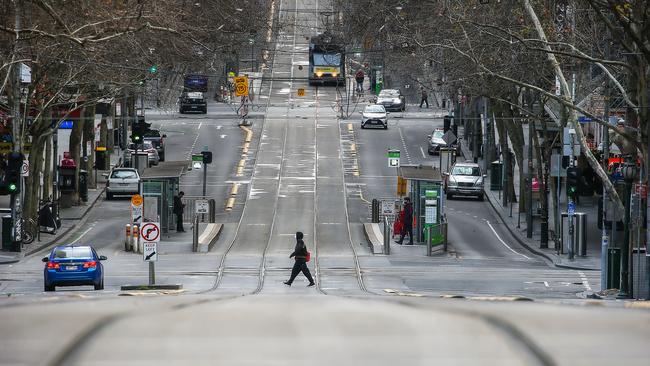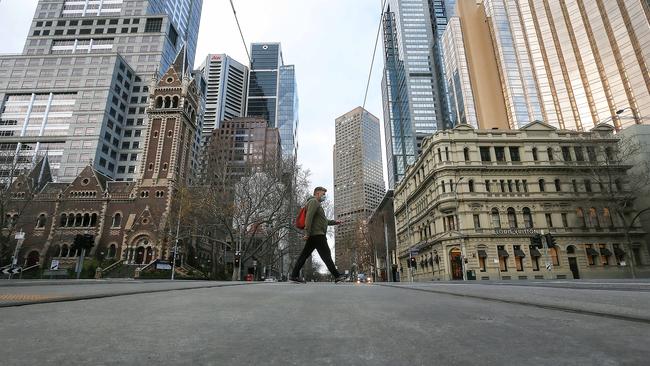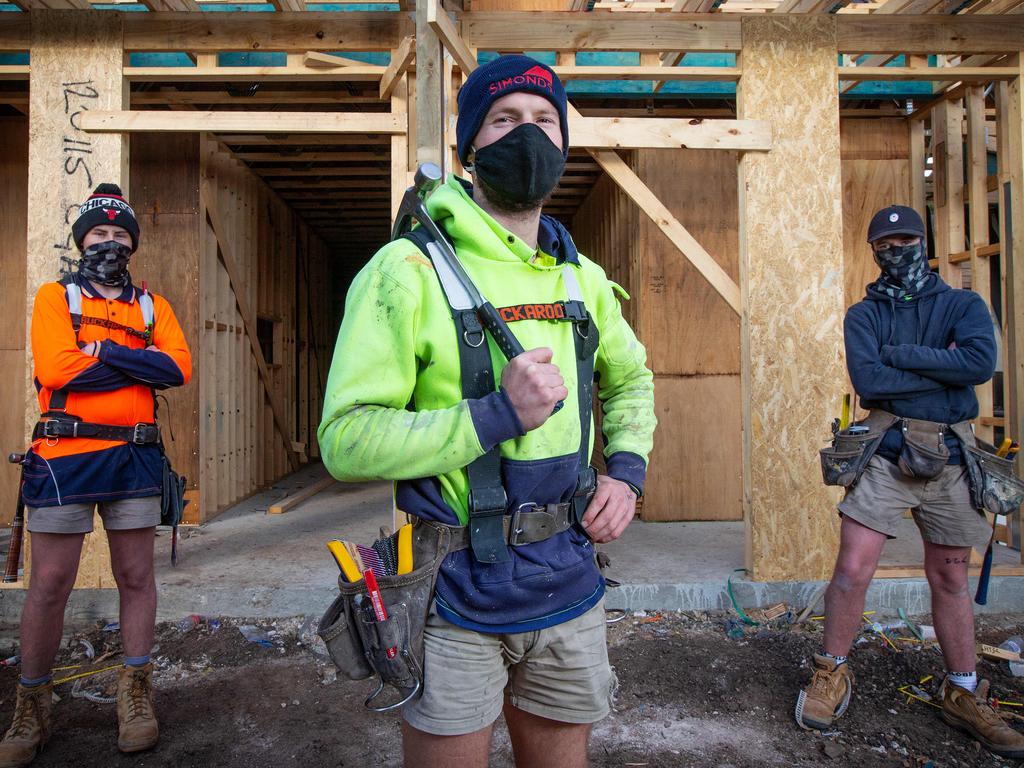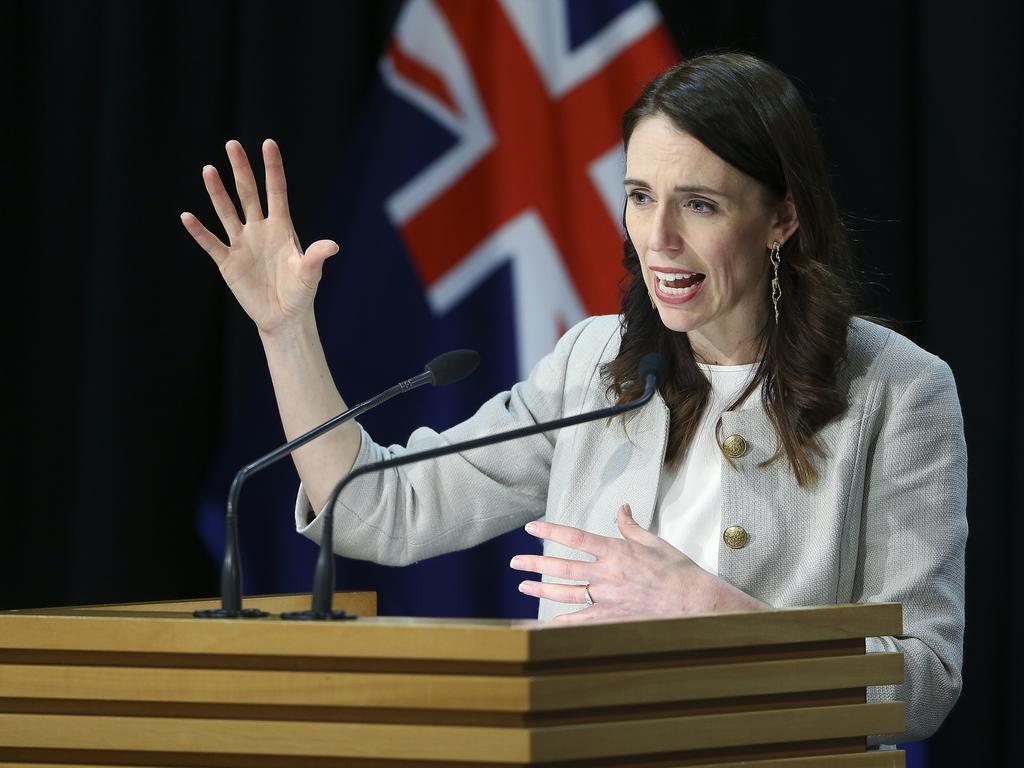If you like lockdowns, you’ll love the carbon-free future

Green activists and their Democratic standard-bearers should be more focused on the potential that the coronavirus crisis could undermine support for their cause. Here are the climate lessons from the pandemic:
• This is what a world without fossil fuels looks like. The lockdown of the US economy beginning in mid-March temporarily choked off demand for crude oil and refined products, driving oil prices negative for the first time ever in April. In recent weeks, production declines have slowed as consumption patterns have started to return to normal with the lifting of quarantines.
If oil use were declining with supply rather than demand, the situation would be similar. Fracking ban advocates and pipeline protesters who want to shut down US production permanently have gotten a glimpse of the end result of their stated goal: dead cities and town centres, empty highways and shopping malls, and abandoned airports and stadiums.
Without fossil fuels, Americans would face limited mobility and economic activity would be diminished, with higher unemployment and perennial supply chain disruptions since hydrocarbons are used to make and transport most goods. This economic reality is probably not lost on the cooped-up general public.

• Urban Americans now know how coal miners feel. Since Covid hit, 56 million Americans have filed for unemployment benefits — with roughly 16% of the US labour force still unemployed at the end of July — as aggressive, sometimes overreaching shelter-in-place orders forced businesses to close, sometimes for good. Coal miners have faced mass unemployment for a decade because of end-market demand destruction caused by government decrees.
But whereas the unemployment and related social pathologies (including opioid addiction, overdoses and suicides) caused by anticoal climate regulations have been confined to Central Appalachia and other rural areas, the current pandemic-related unemployment spike is mainly an urban phenomenon, which makes it harder to ignore. Having walked a mile in the steel-toed boots of coal miners, Americans should have a different perspective on the enlightened nature of elected officials and may think twice about supporting arbitrary shutdowns of politically incorrect businesses.
• There’s no money left to subsidise green energy. The pandemic has exposed the precarious financial position of almost every part of the US economy. Before the crisis, most American households lived from paycheck to paycheck, with little savings for an emergency. We now know that the same is true of most US businesses and almost every level of government.
On the back of four bailout packages in 2020, the federal deficit has exploded, and the US has added nearly $3 trillion to the national debt without expanding the country’s productive capacity. That didn’t stop House Democrats from passing a $1.5 trillion green infrastructure stimulus bill in early July, which has thus far been rightly ignored by the Senate and White House.
As we learned with the 2009 American Recovery and Reinvestment Act, which included more than $90 billion for clean energy programs, extending low-cost loans and investment and production tax credits to solar and wind projects does little to stimulate the economy. Instead, it distorts investment flows and erodes already weak public finances.
• The coronavirus crisis exposes the frivolous nature of climate alarmism. When viewed against the actual loss of human life and livelihoods being caused by the coronavirus, theoretical concerns about the abstract concept of carbon pollution and average temperature readings in 2100 seem trivial. The pandemic also highlights the failings of government in both real-time crisis management and policy making.
Government-backed global-warming alarmists have spent three decades warning everyone about impending planetary doom over the next century. While they have been obsessing about 100 years in the future, a human scourge from 100 years ago sneaked up on the world in less than three months.
As the country starts to dig out from the worst recession since the 1930s, now would be a good time to rethink our priorities.
Paul Tice works in investment management and is an adjunct professor of finance at New York University’s Stern School of Business.







The climate-change movement is taking advantage of the COVID-19 pandemic, equating it with the “existential crisis” of man-made global warming. While praising the current display of unilateral government action as a model for addressing climate change, many environmentalists and liberal politicians have also called for a surge in government spending on renewable energy projects. The 2020 Democratic Party platform champions “decarbonisation” as the best way to “build back better” from the coronavirus.